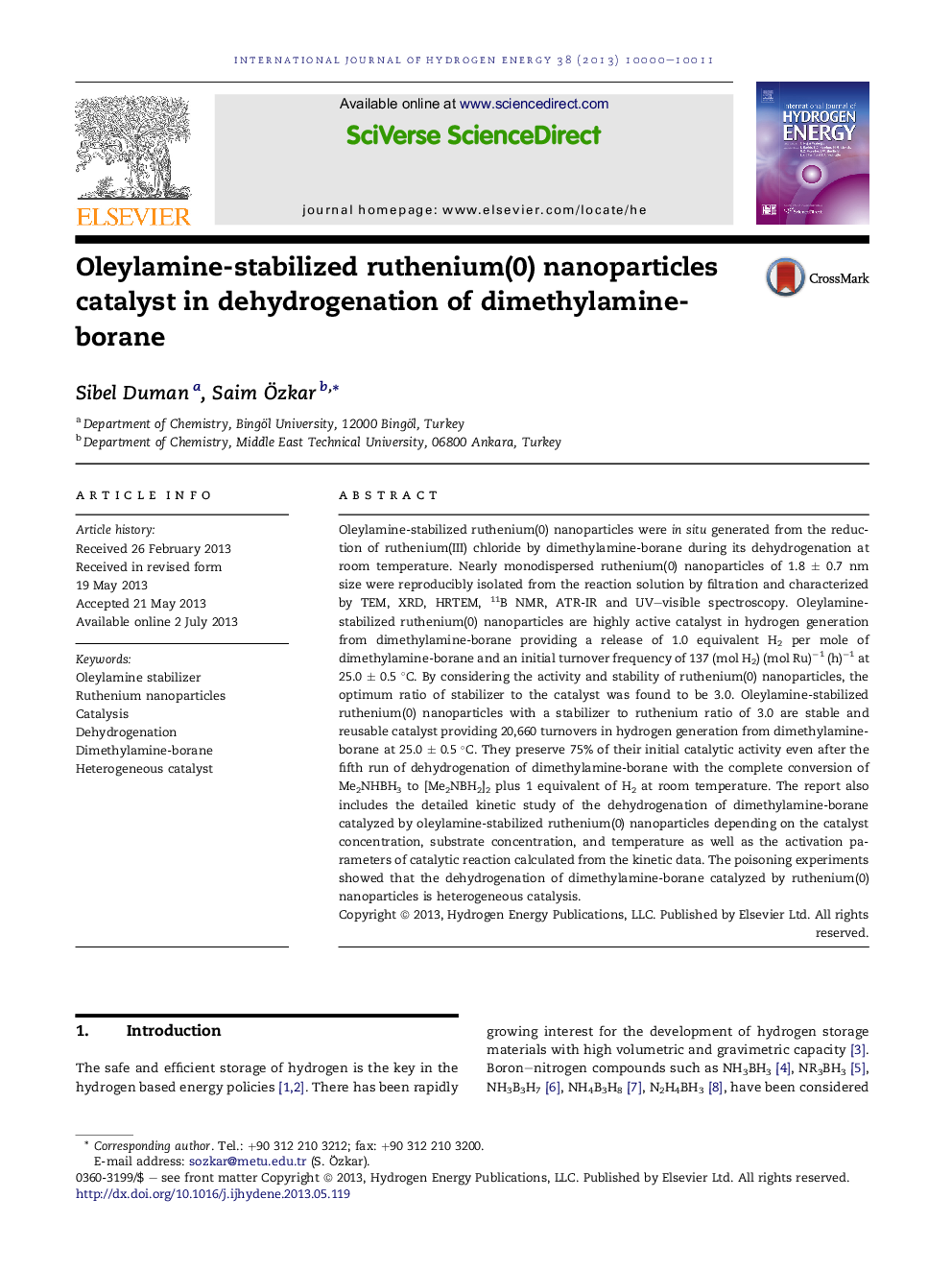| کد مقاله | کد نشریه | سال انتشار | مقاله انگلیسی | نسخه تمام متن |
|---|---|---|---|---|
| 1273413 | 1497521 | 2013 | 12 صفحه PDF | دانلود رایگان |

• Hydrogen generation from the dehydrogenation of dimethylamine-borane at 25 °C.
• OAm-stabilized Ru(0) nanoparticles are highly active and long lived catalyst.
• Detailed kinetic study of the catalytic dehydrogenation of dimethylamine-borane.
Oleylamine-stabilized ruthenium(0) nanoparticles were in situ generated from the reduction of ruthenium(III) chloride by dimethylamine-borane during its dehydrogenation at room temperature. Nearly monodispersed ruthenium(0) nanoparticles of 1.8 ± 0.7 nm size were reproducibly isolated from the reaction solution by filtration and characterized by TEM, XRD, HRTEM, 11B NMR, ATR-IR and UV–visible spectroscopy. Oleylamine-stabilized ruthenium(0) nanoparticles are highly active catalyst in hydrogen generation from dimethylamine-borane providing a release of 1.0 equivalent H2 per mole of dimethylamine-borane and an initial turnover frequency of 137 (mol H2) (mol Ru)−1 (h)−1 at 25.0 ± 0.5 °C. By considering the activity and stability of ruthenium(0) nanoparticles, the optimum ratio of stabilizer to the catalyst was found to be 3.0. Oleylamine-stabilized ruthenium(0) nanoparticles with a stabilizer to ruthenium ratio of 3.0 are stable and reusable catalyst providing 20,660 turnovers in hydrogen generation from dimethylamine-borane at 25.0 ± 0.5 °C. They preserve 75% of their initial catalytic activity even after the fifth run of dehydrogenation of dimethylamine-borane with the complete conversion of Me2NHBH3 to [Me2NBH2]2 plus 1 equivalent of H2 at room temperature. The report also includes the detailed kinetic study of the dehydrogenation of dimethylamine-borane catalyzed by oleylamine-stabilized ruthenium(0) nanoparticles depending on the catalyst concentration, substrate concentration, and temperature as well as the activation parameters of catalytic reaction calculated from the kinetic data. The poisoning experiments showed that the dehydrogenation of dimethylamine-borane catalyzed by ruthenium(0) nanoparticles is heterogeneous catalysis.
Figure optionsDownload as PowerPoint slide
Journal: International Journal of Hydrogen Energy - Volume 38, Issue 24, 12 August 2013, Pages 10000–10011